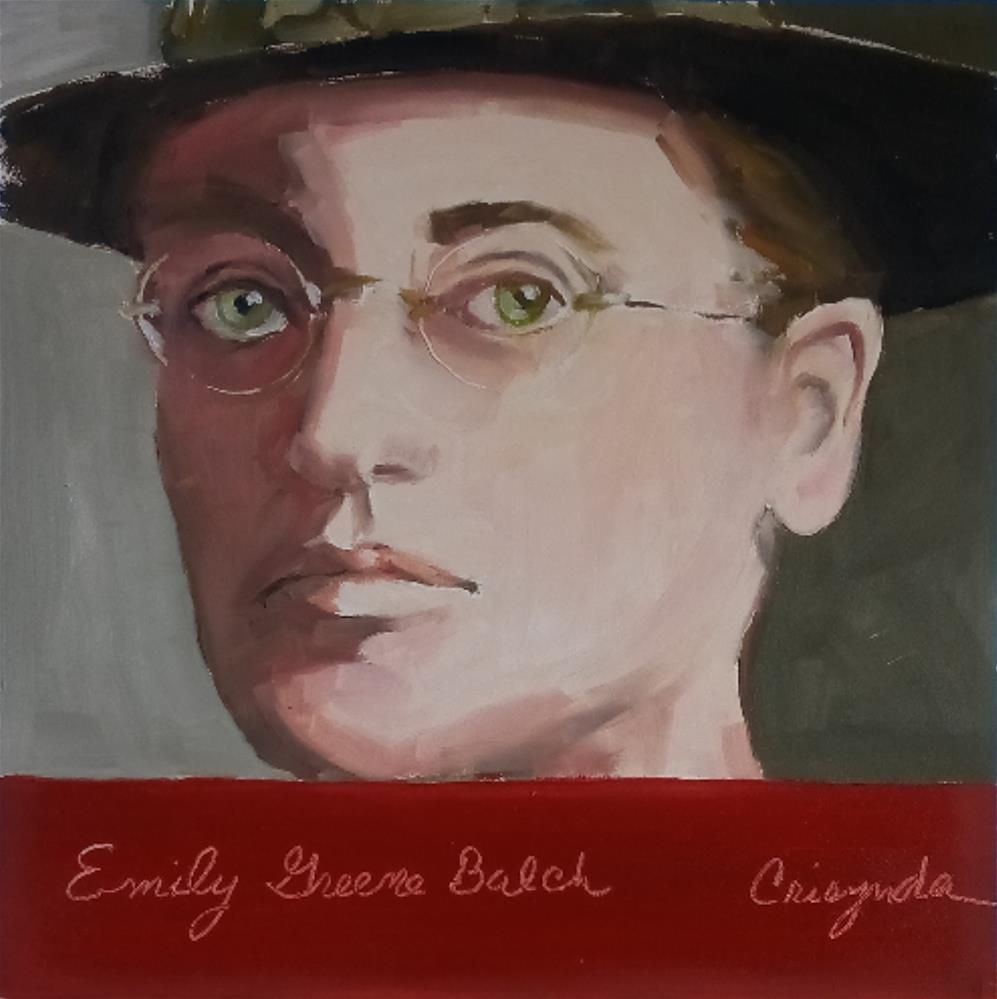Oct 15, 2020
Price: Contact Artist for Price
Media: Oil gessobord
alla prima
Size: 8x8 in
Visit the Artist's:
Gallery
“There is no way to peace, peace is the way.”
Emily Greene Balch spent most of her life using her skills to promote peaceful solutions for the deficiencies she saw in societies and governments at home, in the U.S., and around the world. She was educated in economics and sociology and spoke French, German and English. Born 1867, Balch lived through both World Wars and the Korean Conflict and received a Nobel Peace Prize in 1946. She was notably a founder of a settlement house for the care, well-being and education of women and children. She wrote extensively about the social context of society, and the divisiveness that is inevitable within it.
“We must not be discouraged that the threads of our social texture cross one another. We must remember that nothing can be woven out of threads that all run the same way. This figure of speech can easily be abused – I only want to point out that differences as well as likenesses are inevitable, essential, and desirable. An unchallenged belief or idea is on the way to death and meaninglessness.” This quote validates my strong belief that we must discuss what are often difficult issues, rather than fixing firmly to the idea that religion and politics are off limits. Part of our education should be to learn civil discourse as well as science and belief systems. Only then can we acknowledge that war and its devastation have no use in a civil society.
In reading her masterful 1946 Nobel Lecture and other works, I found that she was concerned about new technologies that gave rise to the rapid movement of information which had a concomitant down side. She noted that advancements in the development of more weapons of war (atomic, chemicals, biological) and the ability to distribute propaganda and false information rapidly and repeatedly, would further divide people and nations. We can see that both have come true today. As Ms. Balch stated, “Technology is a tool, not a virtue.” “There is no way to peace, peace is the way.”
Emily Greene Balch spent most of her life using her skills to promote peaceful solutions for the deficiencies she saw in societies and governments at home, in the U.S., and around the world. She was educated in economics and sociology and spoke French, German and English. Born 1867, Balch lived through both World Wars and the Korean Conflict and received a Nobel Peace Prize in 1946. She was notably a founder of a settlement house for the care, well-being and education of women and children. She wrote extensively about the social context of society, and the divisiveness that is inevitable within it.
“We must not be discouraged that the threads of our social texture cross one another. We must remember that nothing can be woven out of threads that all run the same way. This figure of speech can easily be abused – I only want to point out that differences as well as likenesses are inevitable, essential, and desirable. An unchallenged belief or idea is on the way to death and meaninglessness.” This quote validates my strong belief that we must discuss what are often difficult issues, rather than fixing firmly to the idea that religion and politics are off limits. Part of our education should be to learn civil discourse as well as science and belief systems. Only then can we acknowledge that war and its devastation have no use in a civil society.
In reading her masterful 1946 Nobel Lecture and other works, I found that she was concerned about new technologies that gave rise to the rapid movement of information which had a concomitant down side. She noted that advancements in the development of more weapons of war (atomic, chemicals, biological) and the ability to distribute propaganda and false information rapidly and repeatedly, would further divide people and nations. We can see that both have come true today. As Ms. Balch stated, “Technology is a tool, not a virtue.” |


 Email to a Friend
Email to a Friend























































































































































































